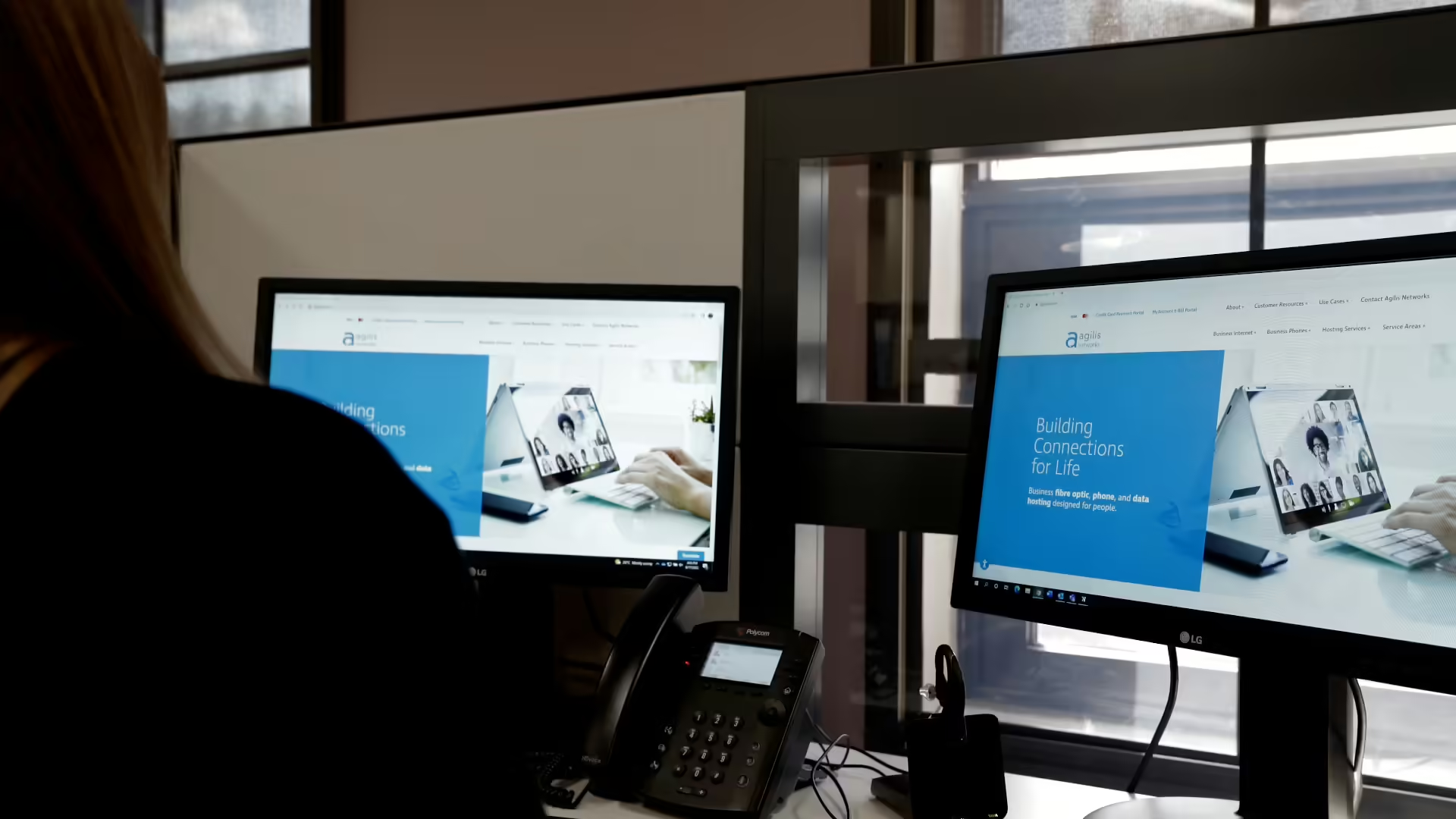Website Security Essentials
In today’s digital landscape, securing your website is more crucial than ever. A secure website protects not only your data but also the privacy of your visitors, helping to build trust and credibility. As more businesses rely on online platforms for operations, it’s essential to implement strong security practices to prevent cyber threats and vulnerabilities.
This blog covers the best practices for website security and how Agilis Networks can support you in safeguarding your online presence.

Website security is an ongoing process, and implementing these best practices is crucial for protecting your online presence.
With the right tools, monitoring, and backup systems in place, you can safeguard your data and provide a secure browsing experience for your visitors.
Besides Agilis Tech Talk, make sure to check Google Security Blog too!Ensure HTTPS Encryption for Secure Data Transfer
The first step in securing your website is using HTTPS (Hypertext Transfer Protocol Secure) to encrypt data exchanged between your site and visitors. This prevents attackers from intercepting sensitive information such as login credentials, payment details, and personal data.
Why HTTPS Matters:
By securing your website with HTTPS, you ensure that all communications are encrypted, providing a safer browsing experience for your users. This also helps improve your search engine rankings, as search engines like Google prioritize secure websites.Keep Your Software Up to Date
Outdated software is a major vulnerability. Whether it’s your content management system (CMS), plugins, or themes, outdated versions are often targeted by attackers exploiting known weaknesses.
Why It’s Important:
Use Strong Passwords and Enable Two-Factor Authentication (2FA)
Weak passwords are one of the easiest ways for attackers to gain unauthorized access to your website. Using complex, unique passwords combined with two-factor authentication (2FA) adds an extra layer of security.
How to Strengthen Passwords:
Implement two-factor authentication (2FA) for additional protection.
Use a combination of uppercase and lowercase letters, numbers, and special characters.
Avoid using personal information, like your name or birthdate, in passwords.Use Strong Passwords and Enable Two-Factor Authentication (2FA)
Weak passwords are one of the easiest ways for attackers to gain unauthorized access to your website. Using complex, unique passwords combined with two-factor authentication (2FA) adds an extra layer of security.
How to Strengthen Passwords:
Implement two-factor authentication (2FA) for additional protection.
Use a combination of uppercase and lowercase letters, numbers, and special characters.
Avoid using personal information, like your name or birthdate, in passwords.Backup Your Website Regularly
Regular backups are vital to website security. In the event of a cyber attack or server failure, having a backup of your website allows you to restore it quickly and prevent significant data loss.
Why Backups Are Essential:
Backups ensure that, even in the worst-case scenario, your website can be recovered with minimal downtime. It’s important to store backups in multiple locations to avoid data loss in the event of a hardware failure.Limit Access to Sensitive Areas
Limiting access to sensitive parts of your website reduces the risk of unauthorized users making harmful changes or uploading malicious files.
How to Implement Access Control:
Use security tools that monitor and alert you about any suspicious login attempts.
Restrict admin access to specific IP addresses.
Grant users the minimum permissions necessary to perform their tasks.Monitor Your Website for Suspicious Activity
Constant monitoring of your website helps you detect any unauthorized attempts to access or modify your site. Early detection allows you to respond quickly and mitigate potential damage.
How to Monitor:
Regularly check for unexpected changes or new files that weren’t added by you.
Enable logging and alerts for unusual activity, such as multiple failed login attempts.Use a Web Application Firewall (WAF)
A Web Application Firewall (WAF) is designed to filter and monitor incoming traffic to your website, helping to block malicious activity such as SQL injection, cross-site scripting (XSS), and other common web attacks.Secure Your Hosting Environment
Your website’s security is only as strong as the hosting environment it runs on. Ensuring that your hosting provider offers secure server environments, firewalls, and regular security patches is key to maintaining a safe website.
Why Secure Hosting Matters:
Choosing a secure web hosting provider ensures that your server is protected from external attacks and offers critical infrastructure to safeguard your website and sensitive data.Educate Your Team and Users About Website Security
Website security isn’t just the responsibility of your IT team. Educating your staff and users about good security practices—such as recognizing phishing attempts, avoiding suspicious links, and using secure passwords—can help prevent attacks.
Agilis Networks is committed to offering reliable web hosting and email services designed to keep your website secure and running smoothly.



